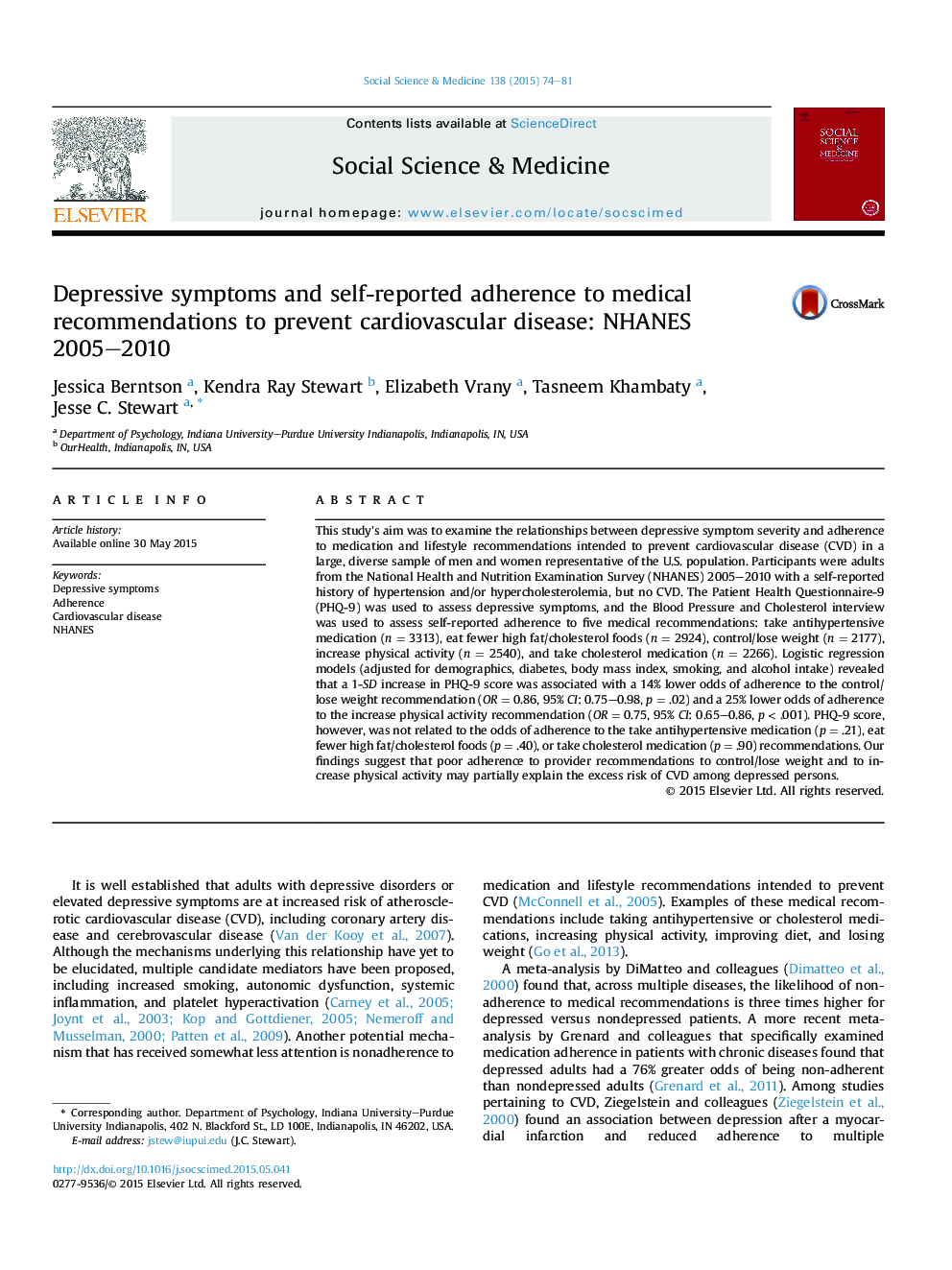| Article ID | Journal | Published Year | Pages | File Type |
|---|---|---|---|---|
| 7332102 | Social Science & Medicine | 2015 | 8 Pages |
Abstract
This study's aim was to examine the relationships between depressive symptom severity and adherence to medication and lifestyle recommendations intended to prevent cardiovascular disease (CVD) in a large, diverse sample of men and women representative of the U.S. population. Participants were adults from the National Health and Nutrition Examination Survey (NHANES) 2005-2010 with a self-reported history of hypertension and/or hypercholesterolemia, but no CVD. The Patient Health Questionnaire-9 (PHQ-9) was used to assess depressive symptoms, and the Blood Pressure and Cholesterol interview was used to assess self-reported adherence to five medical recommendations: take antihypertensive medication (n = 3313), eat fewer high fat/cholesterol foods (n = 2924), control/lose weight (n = 2177), increase physical activity (n = 2540), and take cholesterol medication (n = 2266). Logistic regression models (adjusted for demographics, diabetes, body mass index, smoking, and alcohol intake) revealed that a 1-SD increase in PHQ-9 score was associated with a 14% lower odds of adherence to the control/lose weight recommendation (OR = 0.86, 95% CI: 0.75-0.98, p = .02) and a 25% lower odds of adherence to the increase physical activity recommendation (OR = 0.75, 95% CI: 0.65-0.86, p < .001). PHQ-9 score, however, was not related to the odds of adherence to the take antihypertensive medication (p = .21), eat fewer high fat/cholesterol foods (p = .40), or take cholesterol medication (p = .90) recommendations. Our findings suggest that poor adherence to provider recommendations to control/lose weight and to increase physical activity may partially explain the excess risk of CVD among depressed persons.
Related Topics
Health Sciences
Medicine and Dentistry
Public Health and Health Policy
Authors
Jessica Berntson, Kendra Ray Stewart, Elizabeth Vrany, Tasneem Khambaty, Jesse C. Stewart,
